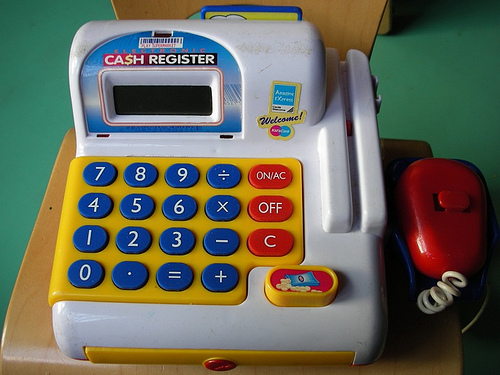Is it just me or do kids these days have more stuff? You know, mobile phones, hand-held video games, mp3 players – stuff.
And it’s not just anything, it’s expensive. This is not a “back in my day” rant, but I’m sure there are many out there with the same concerns as I do, that not only are the gadgets finding their way into the hands of younger and younger children, but are we sure that they understand the value of what they possess?
There is no problem with the tech that was literally science fiction not a generation ago in our kids grubby paws, it’s a sign of the times. Each generation is no different from the next, it’s just a question of what was considered a possession of value at any given time.
A friend’s eight-year-old child is on to her third mobile phone in less than a year; they’re not the most expensive devices on the market, but three in one year adds up! She’s a kid, kids lose things, it’s a fact.
Another’s child left his Nintendo DS at a friend’s house – he was upset because his toy wasn’t in his hand, mom was upset because it’s an expensive piece of kit, and while perfectly safe where it was, she was thinking more about the fact that it was inevitable that it will be left somewhere else and be unrecoverable.
However, if we teach, and more importantly give children responsibility for their own money that DS might not be used as a makeshift goalpost, and mobile phone number three won’t become number four. So, what can we do?
It starts with money
If they can count the number of apples in a fruit bowl they can count money. Introduce them to money, and use it as an educational counting tool. It gets them familiar with the concept of money and will help them to understand that toys don’t just appear as if by magic – apart from those from Santa Claus, that IS magic!
Learn about money
As children get older you can let them take some of the responsibility for their money. If you teach them some personal values around money such as how to save it, you can show them how sensible saving can lead to wise spending.
For years when I got my pocket money it had barely warmed-up in my hand before it was spent, and there was never enough to get everything I wanted. Which leads me to…
The difference between need and want
Even as adults we always want more than we need, but at least we can make the distinction between the two. Children pretty much only want, they never need even if they get the two confused. It starts with saving – they need to save to get what they want.
They might need some help
If you give them £5 every week encourage them to put at least one pound into a savings account.
It’ll accumulate interest and if you explain them that £52 will grow all by itself within interest, they’ll start to think about money as something to be invested rather than handed over the counter at the corner shop.
Setting limits
When you’re young a week is a long time. Once the money is spent there’s no more until next week, but it’s up to them, and let’s be honest there’s a good chance the money will be gone before you can blink. And this takes me back to the mobile phone.
Our entire lives are practically ruled by hand-held devices, but more importantly it’s a pretty important tool for their safety and your peace of mind.
Setting rules like checking in at a certain time with a phone call is simple enough, but the temptation to abuse the phone by making pointless calls must be unbelievable, certainly if I had had a mobile as a child the subsequent phone bill would be astronomical.
The best way around this would be to use pay as you go sim cards which you can load up with a small amount of money – enough for the all-important check-in but also enough for them to feel like they’ve got a certain amount of freedom.
This will hopefully teach them to be sensible with how they use the phone, and like the pocket money, once the credit has expired it will stay that way until the next time you top it up.
Hopefully if we can instill just a few good money habits in our children they’ll get lessons that will stick with them for life.
Catherine Halsey writes for a digital marketing agency on a range of subjects. This article links back to http://www.lebara.co.uk/Pre-Pay-Cards

